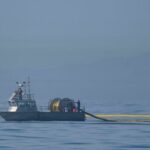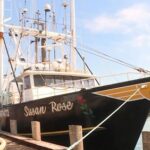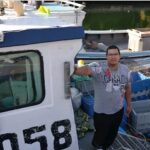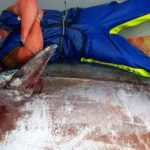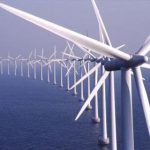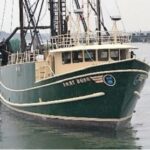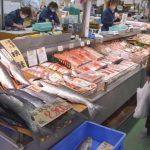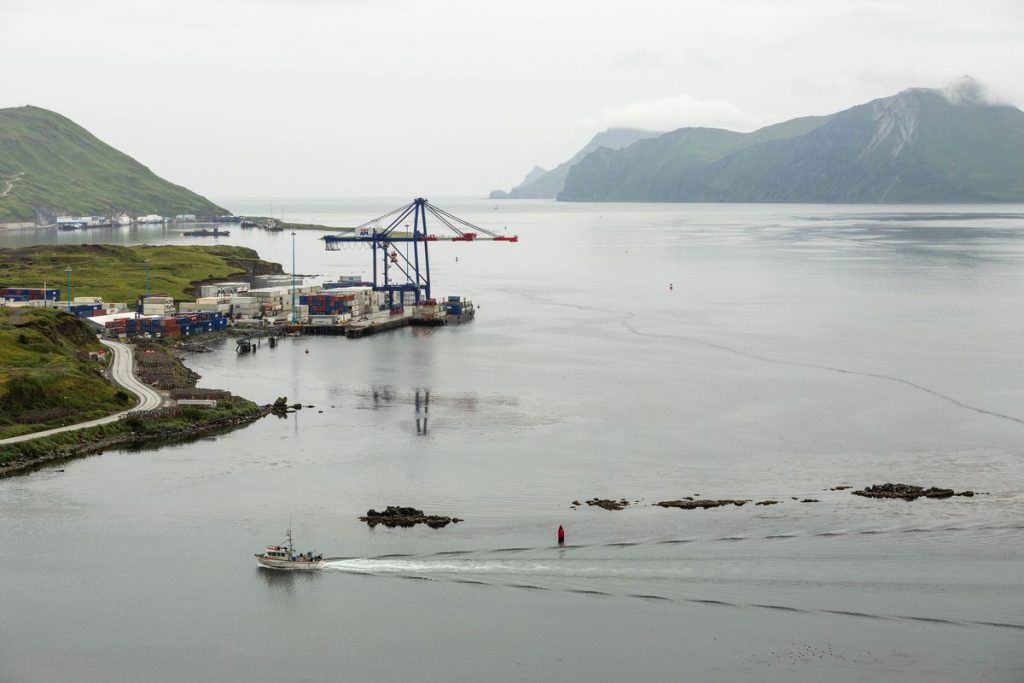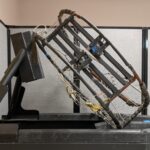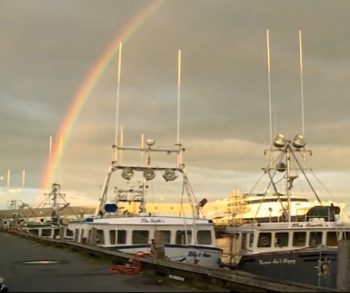Tag Archives: Pacific Seafood Processors Association

Bristol Bay fishermen up in arms against lower salmon prices, will protest
Commercial fishermen in the Bristol Bay region are voicing their displeasure against recent prices of sockeye salmon. According to fisherman Cheyne Blough, the price of sockeye salmon hovered around $1.20-$1.50 per pound, but as of recently, the price dropped to 50 cents. “We all expected less than last year. But we had no clue it was gonna be basically kind of bankruptcy prices,” Blough said. Since then, Blough along with several other commercial fishermen have set up a protest that will happen on Thursday, where fishermen will line up their boats in front of the Naknek River, in protest of the lowered prices. Video, >click to read< 07:50
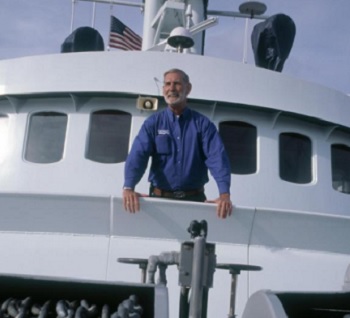
Seafood Billionaire Donates To Trump
In the southwest corner of Alaska, next to a line of islands that point across the Bering Sea, sits Bristol Bay, home to one of the most plentiful salmon runs on earth. Nearly 20 years ago, a Canadian company named Northern Dynasty Minerals, started planning for a gold and copper mine nearby, which it has said would create jobs. While the Canadian company was eager to extract riches from the ground, Chuck Bundrant, the billionaire founder of Trident Seafoods was apparently concerned about how the mine would affect his ability to extract riches from the sea. “It poses a significant risk to the many families, businesses, and communities that rely upon the natural resources of Bristol Bay,” >click to read< 13:29
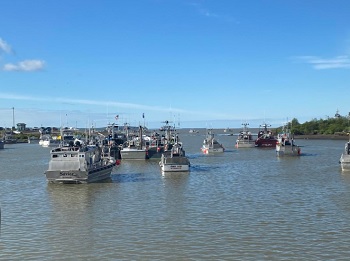
For Alaska’s seafood processors, the Coronavirus pandemic has cost tens of millions
Heading into the 2020 fishing season, many people were concerned that seafood workers from out of state would bring COVID-19 to rural communities. Processing companies managed to keep the disease under control. but at a big cost. Now, economists are looking at that financial toll. To keep track of how the pandemic is shaping the seafood industry, economists at the McDowell Group have started to publish monthly briefs for the Alaska Seafood Marketing Institute. “It’s interesting to describe a crisis when you’re in the crisis, right? And that’s our situation,” said Garrett Everidge, an economist at the McDowell Group. >click to read< 15:15
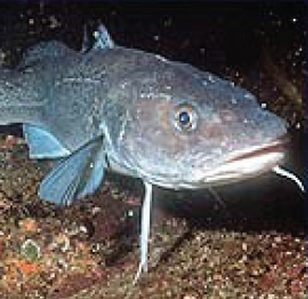
Bering Sea cod conflict brewing between on and offshore buyers
“Cod Alley” is getting crowded, and some fishermen want to limit the boats in the narrow congested fishing area in the Bering Sea. The North Pacific Fishery Management Council is looking at changes, including restricting flatfish factory trawlers from buying cod offshore. The Pacific Seafood Processors Association is pushing for restrictions on factory trawlers to protect its members’ shore plants in Unalaska, Akutan, King Cove and Sand Point. According to the PSPA’s Nicole Kimball, seven factory trawlers bought cod from 17 catcher boats in 2017,,, click here to read the story 21:23
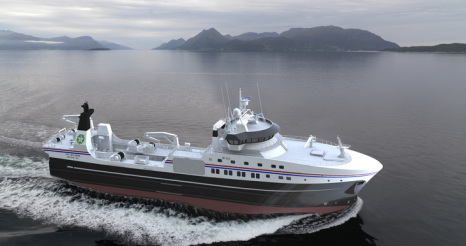
Pacific Seafood Processor’s Association seeks probe into America’s Finest foreign steel
The trade group representing Alaska’s onshore fish processing plants is challenging a request for an exemption to a federal law limiting the amount of foreign steel allowed in fishing vessel construction. The Pacific Seafood Processor’s Association has major issues with the request for a Jones Act waiver sought by Fisherman’s Finest, the owner of the embattled flatfish factory trawler American’s Finest, and its builder, the Washington shipyard Dakota Creek Industries. The 261-foot vessel is nearly complete at a cost of at least $60 million, and cannot fish in U.S. waters without the waivers. PSPA’s members include Unisea and Westward in Unalaska, and most of the other fish processors in Alaska. click here to read the story 09:52
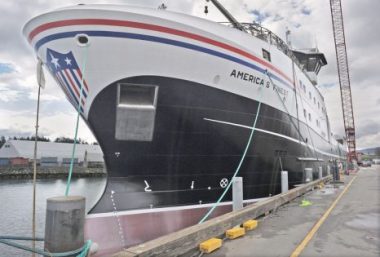
Dakota Creek Industries trying to make things right in eyes of Congress
Dakota Creek Industries owner Mike Nelson and his staff have been looking for ways to appease federal lawmakers following the mistake the company made in building the $75 million fishing vessel America’s Finest. The mistake — using too much foreign-formed steel in the vessel’s hull — requires a waiver from the U.S. Congress in order for the ship to fish domestically. The waiver would be for the Jones Act, which requires domestic fishing vessels be built in the U.S. These days, Nelson glances frequently at his cell phone hoping for good news concerning his company’s lobbying efforts in Washington, D.C. click here to read the story 12:12
Fishing-industry groups blast Inslee over his picks for federal council
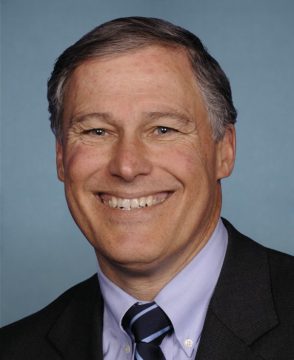 Gov. Jay Inslee’s handling of nominations for a federal fishery-council seat has come under attack from the leaders of major North Pacific fishing-industry groups, which have taken the unusual step of sending a complaint letter to the U.S. Secretary of Commerce.,, In their letter sent Tuesday, they asked Commerce Secretary Wilbur Ross to reject Inslee’s nominations and called for the governor to come up with some new names for a seat on the council. The industry backlash reflects the high stakes in fish politics, where the federal fishery council helps sets the rules for a billion-dollar groundfish harvest, much of which is caught and processed by Seattle-based companies. The letter is signed by the leaders of the Pacific Seafood Processors Association, At-Sea Processors Association, Groundfish Forum, and United Catcher Boats, whose membership collectively catches or processes most the groundfish. Read the article, click here 10:05
Gov. Jay Inslee’s handling of nominations for a federal fishery-council seat has come under attack from the leaders of major North Pacific fishing-industry groups, which have taken the unusual step of sending a complaint letter to the U.S. Secretary of Commerce.,, In their letter sent Tuesday, they asked Commerce Secretary Wilbur Ross to reject Inslee’s nominations and called for the governor to come up with some new names for a seat on the council. The industry backlash reflects the high stakes in fish politics, where the federal fishery council helps sets the rules for a billion-dollar groundfish harvest, much of which is caught and processed by Seattle-based companies. The letter is signed by the leaders of the Pacific Seafood Processors Association, At-Sea Processors Association, Groundfish Forum, and United Catcher Boats, whose membership collectively catches or processes most the groundfish. Read the article, click here 10:05
Seafood groups pick up $5.9M tab for ADF&G hatchery salmon research
 Processors and seven hatcheries have agreed to pony up millions to keep an Alaska Department of Fish and Game research project going. Pacific Seafood Processors Association and Northern Southeast Regional Aquaculture Association Inc., committed $5.9 million to support the Wild/Hatchery Salmon Management Tools capital project. The project is intended to fuel management decisions around Alaska’s 29 salmon hatcheries, as well as secure a more marketable reputation for Alaska hatchery stocks. The program was originally started in 2012 as a collaboration between ADFG, the PSPA and private nonprofit hatcheries. Continue reading the story here 10:18
Processors and seven hatcheries have agreed to pony up millions to keep an Alaska Department of Fish and Game research project going. Pacific Seafood Processors Association and Northern Southeast Regional Aquaculture Association Inc., committed $5.9 million to support the Wild/Hatchery Salmon Management Tools capital project. The project is intended to fuel management decisions around Alaska’s 29 salmon hatcheries, as well as secure a more marketable reputation for Alaska hatchery stocks. The program was originally started in 2012 as a collaboration between ADFG, the PSPA and private nonprofit hatcheries. Continue reading the story here 10:18
NFI sues NOAA over new IUU rule
The National Fisheries Institute 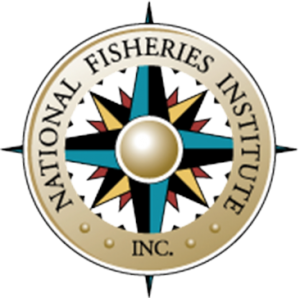 (NFI) has sued the National Oceanic and Atmospheric Administration (NOAA) and the Department of Commerce over a recently enacted rule that could cost the commercial fishing industry as much as USD 1 billion (EUR 946 million) annually. NOAA’s National Marine Fisheries Service issued a final rule on 9 December that requires U.S. seafood importers to trace the origin of the fish they import to either the specific boat that caught the fish or to its collection point, as well as the location and date the fish was caught. The regulation was designed to combat illegal, unregulated and unreported (IUU) fishing regulation, but it will cost the industry at least USD 100 million (EUR 95 million) per year, NFI said in a press release. Read the story here 14:11
(NFI) has sued the National Oceanic and Atmospheric Administration (NOAA) and the Department of Commerce over a recently enacted rule that could cost the commercial fishing industry as much as USD 1 billion (EUR 946 million) annually. NOAA’s National Marine Fisheries Service issued a final rule on 9 December that requires U.S. seafood importers to trace the origin of the fish they import to either the specific boat that caught the fish or to its collection point, as well as the location and date the fish was caught. The regulation was designed to combat illegal, unregulated and unreported (IUU) fishing regulation, but it will cost the industry at least USD 100 million (EUR 95 million) per year, NFI said in a press release. Read the story here 14:11
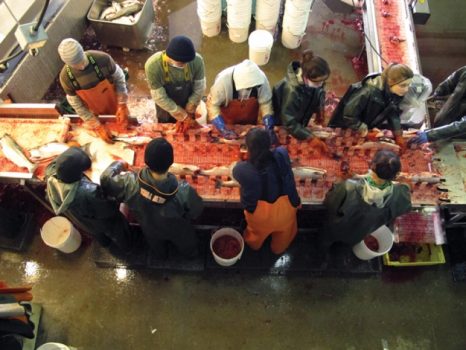
Processors working with harvesters on budget plan
Fish harvesters and processors might not agree on much, but everyone hates taxes. Commercial fishing stakeholders took turns in 2016 tearing apart a commercial fisheries tax plan from Gov. Bill Walker that the Legislature batted around during the marathon session but eventually dropped. The industry has such diverse needs and complex features that the bill couldn’t hit the revenue target without hurting one industry segment more than another. Stakeholders also objected to a holdup with a range of other industry taxes introduced by Walker. As none of the other taxes moved out of committee, House Fisheries Committee Chair Rep. Louise Stutes, R-Kodiak, tabled the fishing taxes until she could be sure the industry wouldn’t take a hit none of the other industry’s would face. Months later, Walker bundled the fisheries tax into a bill with mining and fuel taxes. The bill stalled. Fisheries stakeholders might have a fix. At an October meeting of the United Fishermen of Alaska, the state’s largest harvester group, fishermen decided to knock heads together instead of against the legislative wall. Read the story here 17:44
Alaska trawlers furious about Walker’s council nominations
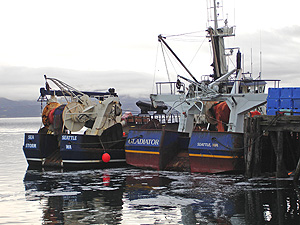 Two months after a heated meeting, trawlers are again accusing Alaska Department of Fish and Game Commissioner Sam Cotten of short-changing their industry. Gov. Bill Walker submitted nominations to fill two seats of the North Pacific Fishery Management Council on March 9, sending waves of dissatisfaction throughout an industry segment that claims Walker’s administration is forcing it out of the process at the worst time possible. Trawlers claim nominees were chosen based on fealty to a specific vision of Alaska fisheries rather than experience. Read the rest here 08:07
Two months after a heated meeting, trawlers are again accusing Alaska Department of Fish and Game Commissioner Sam Cotten of short-changing their industry. Gov. Bill Walker submitted nominations to fill two seats of the North Pacific Fishery Management Council on March 9, sending waves of dissatisfaction throughout an industry segment that claims Walker’s administration is forcing it out of the process at the worst time possible. Trawlers claim nominees were chosen based on fealty to a specific vision of Alaska fisheries rather than experience. Read the rest here 08:07

































